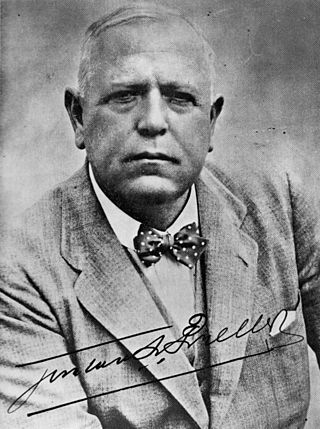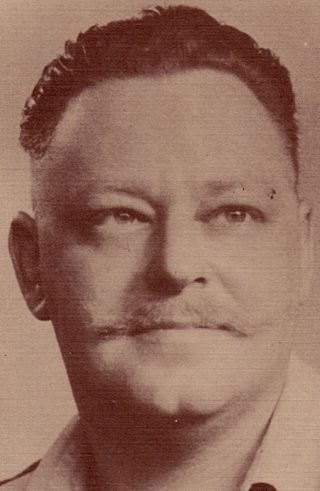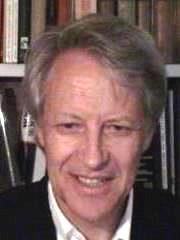Olga Kirsch was a South African and Israeli poet.

Gustav Schoeman Preller was a journalist, historian, writer and literary critic. He fought for the recognition of Afrikaans. Preller helped the Afrikaner to realize the importance of the history of South Africa. He made great contributions to the writing of South African history, through his research and literature. He also contributed greatly to making South Africans aware of the legacy of the Voortrekkers and also played an early part in planning the Voortrekker Monument.

South African literature is the literature of South Africa, which has 11 national languages: Afrikaans, English, Zulu, Xhosa, Sotho, Pedi, Tswana, Venda, Swazi, Tsonga and Ndebele.
Johannes du Plessis Scholtz was a South African philologist, art historian, and art collector.
Dr. Daniel Hugo is a poet, translator, compiler and editor. He worked a specialist announcer / producer for Radiosondergrense, the national Afrikaans radio service, and was also responsible for the literary programmes "Leeskring" and "Vers en Klank". He is an edit at the publishing house Protea Boekhuis.
John Christoffel Kannemeyer, better known as J. C. Kannemeyer was an authority on Afrikaans literature and a well-known biographer of Afrikaans writers, and published numerous books on the history of Afrikaans literature.

Peter Emil Julius Blum was an Afrikaans poet. As a child, he emigrated to the Union of South Africa with his family. From an early age Blum was already able to speak several languages, including German and Italian.
Carellina Pieternella (Lina) Spies is an Afrikaans poet and academic.
Francois Alwyn (Frans) Venter was a prominent Afrikaans writer of the 20th century. His novels explored biblical religious themes, or cultural identities in the South African context. He also examined relations between white and black more closely in Wit oemfaan, which describes a white boy's discovery of the customs of the Zulu nation. Swart pelgrim on the other hand relates the experiences and observations of a migrant from a black rural setting to the industrialised, white-dominated environment. He may be best known for his novel Geknelde land, which describes the Eastern Cape Boer community living under Xhosa raids and the English governance of the 19th century.

Andries Gerhardus Visser was a well-known early Afrikaans poet. He was popularly known as the "Singer of the Suikerbosrand".

The Suid-Afrikaanse Akademie vir Wetenskap en Kuns (SAAWK) is a multidisciplinary organization dedicated to promoting science, technology and the arts in Afrikaans, as well as promoting the use and quality of Afrikaans. The Hertzog Prize is awarded annually by the academy for high-quality literary work, while the Havenga prize is awarded annually for original research in the sciences.

Hoërskool Voortrekker is a public Afrikaans medium co-educational high school situated in the municipality of Boksburg in the city of Ekurhuleni in the Gauteng province of South Africa. The academic school was established in 1920.
Abraham Hermanus de Vries was an Afrikaans short story writer, considered one of the most respected and beloved in Afrikaans language literature in the Sestigers.
S. V. Petersen was an Afrikaans-language South African poet and author, educator and founding principal of the Athlone High School, Silvertown Athlone, Cape Town. He was the first person of colour whose poetry and prose were published in South Africa.
Welma Odendaal is a South African writer writing in Afrikaans.
Cecile Cilliers was an Afrikaans freelance journalist and writer. The writer Madeleine van Biljon is her sister. She is predominantly known for her essays, but also published among others a children's collection and a number of religious books. She was involved in the N.G. Kerk and was the first non-ministerial woman to be elected vice-chairperson of the Sinodal Committee. In addition to her performance of the Christian Network Television's Program Focus Point, she also presented the television program Boeksusters on KykNET with her sister, Madeleine van Biljon.
Johannes Petrus Spies was a Namibian author and popular storyteller. Alongside P.G. du Plessis he was the presenter of the popular television program Spies en Plessie – met permissie, and hosted personalities like Tolla van der Merwe, Koos Meyer, Danny Pretorius, Nico Nel and Pyp de Villiers.

Marie Linde was the pen name of Elizabeth Johanna Bosman, a South African novelist of Afrikaner descent. Initially home schooled, she studied modern languages at the University of Cape Town and was an accomplished linguist, able to speak Dutch, German, French and English. She published novels, short stories and plays, and created the first Afrikaans radio play broadcast. Published in 1925, her novel Onder bevoorregte mense was the first Afrikaans novel translated into English, being issued as Among Privileged People.
Fransjohan Pretorius is a South African historian and professor emeritus of History at the University of Pretoria. His main field is the history of the Second Anglo-Boer War (1899–1902), to which he contributed many scholarly books and articles, both as an author and editor. His 1999 book, Life on Commando during the Anglo-Boer War 1899-1902, was runner-up for the Sunday Times Alan Paton Award. The Afrikaans edition won three major awards. He received the Stals Prize from the Suid-Afrikaanse Akademie vir Wetenskap en Kuns in 1998, and is a former editor of 'Historia', the journal of the South African Historical Association.
S.P.E. Boshoff was a South African Afrikaner linguist, writer, adapter of plays and promoter of the use of the Afrikaans language.







